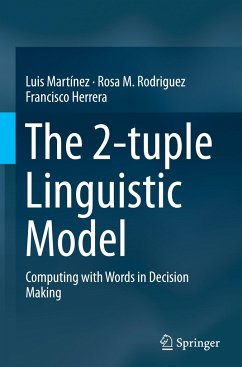
Fuzzy Logic
An Introductory Course for Engineering Students
Versandkostenfrei!
Versandfertig in 6-10 Tagen
76,99 €
inkl. MwSt.
Weitere Ausgaben:

PAYBACK Punkte
38 °P sammeln!
This book introduces readers to fundamental concepts in fuzzy logic. It describes the necessary theoretical background and a number of basic mathematical models. Moreover, it makes them familiar with fuzzy control, an important topic in the engineering field. The book offers an unconventional introductory textbook on fuzzy logic, presenting theory together with examples and not always following the typical mathematical style of theorem-corollaries. Primarily intended to support engineers during their university studies, and to spark their curiosity about fuzzy logic and its applications, the b...
This book introduces readers to fundamental concepts in fuzzy logic. It describes the necessary theoretical background and a number of basic mathematical models. Moreover, it makes them familiar with fuzzy control, an important topic in the engineering field. The book offers an unconventional introductory textbook on fuzzy logic, presenting theory together with examples and not always following the typical mathematical style of theorem-corollaries. Primarily intended to support engineers during their university studies, and to spark their curiosity about fuzzy logic and its applications, the book is also suitable for self-study, providing a valuable resource for engineers and professionals who deal with imprecision and non-random uncertainty in real-world applications.














